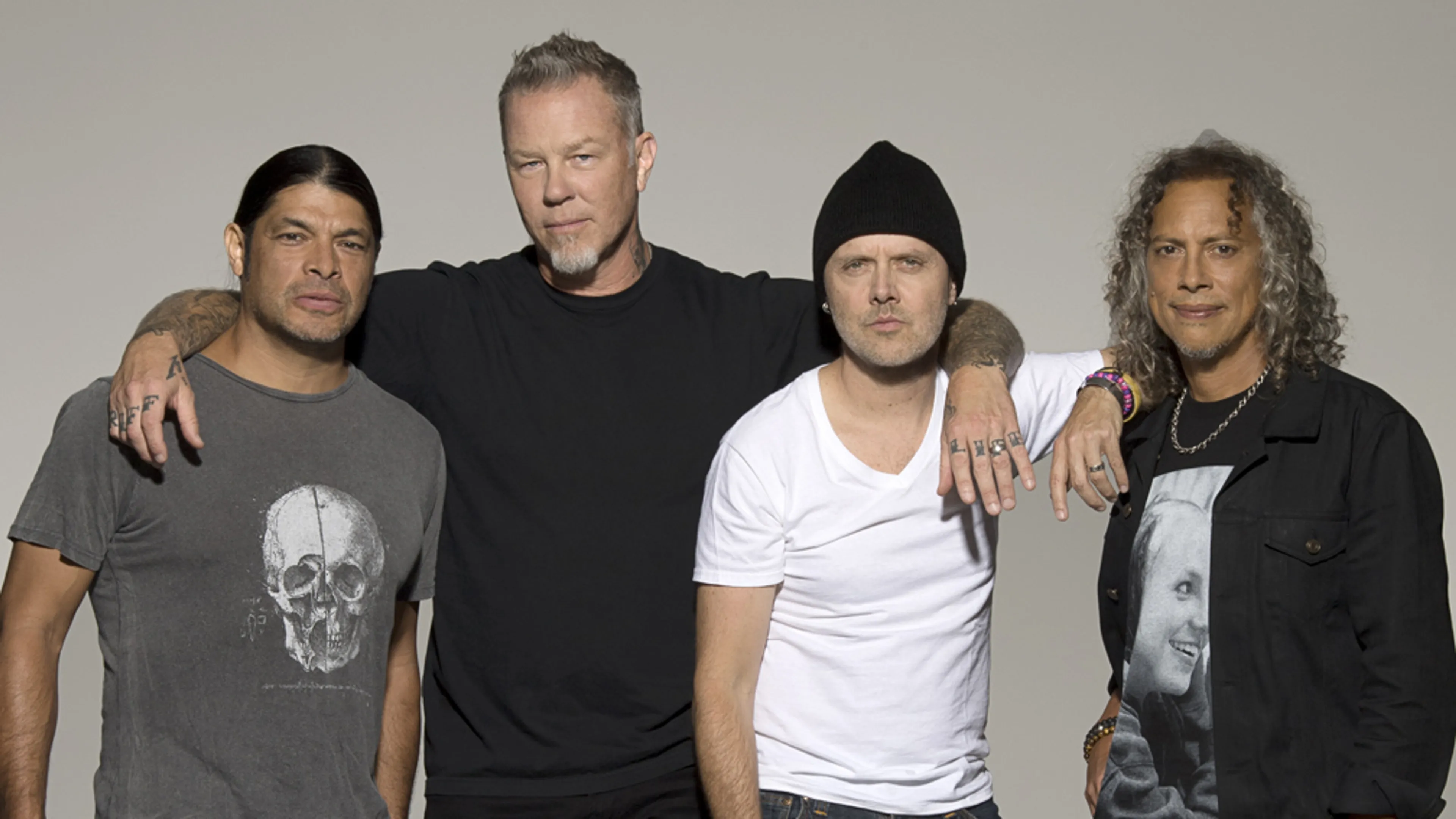John from Brighton asks: What’s your favourite jazz album, Lars?
Lars: “That’s hard. Ultimately, when it comes down to it, Kind Of Blue by Miles Davis is sort of the gold standard. I never like to give the obvious answers, but when I hear that record, it really is like a whole other level. ”
Aran from Leicester asks: If you were going to make a Garage Inc. 2, which songs would you cover now?
Lars: “Wait and see…”
Carol from Luton asks: Will the current run of deluxe album box sets be harder to compile the further you get into your career?
Lars: “It’s definitely harder to figure how much to put in there because there’s so much more material to choose from. With the older material, it was a little easier because we just put everything in there that existed!”
Stephanie from London asks: Lars, you were knighted in Denmark in 2017. What perks does that bring?
Lars: “An additional question in a Kerrang! interview – if that’s not a perk, I don’t know what is! There aren’t many heavy metal drummers in Denmark that have been knighted, so that in itself is a very exclusive club.”
Gav from Cornwall asks: How do you unwind after a gig?
Kirk: “It’s just like when athletes come out of a game with high adrenaline; they’re shaking, they’re sweaty, they’re fatigued but still amped, and they hop in the shower and it helps them calm down. It’s the same thing with us. The warm water starts relaxing you and you start to calm down. I used to just drink until I couldn’t feel anything, but really, showering is almost meditating at this point.”
Rob from Kent asks: Have you watched The Dirt or Bohemian Rhapsody films? Who would play Metallica in a similar biopic?
Lars: “I’ve seen both of them. Who would play Metallica? Well, we used to joke that James Spader was going to play me. Then we used to say that the Cowardly Lion from The Wizard Of Oz was going to play James and I think Carlos Santana was going to play Kirk. That super bad-ass guy, Danny Trejo, would play Robert. Let’s see how it plays out!”
Gabby from New York asks: What’s the secret to being a band for 40 years?
Lars: “Compromise. That’s it. Number two is really far down from ‘compromise’.”
Sam from London asks: What would you most like to be remembered for doing?
Lars: “Giving it my best? I don’t know, I’m so bad with questions like that. Anything would seem self-congratulatory. Let me tell you… the thing that I’m proudest of is that we showed the mainstream that there was a different way of doing it and that there were millions of people wanting something different than what was being served up.”
Read this next:
